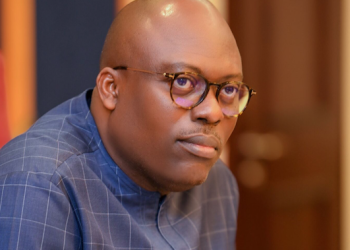The Chief of Defence Staff, General Christopher Musa, has confirmed ongoing collaborations with the military authorities in Niger Republic, Burkina Faso, and Mali to strengthen efforts against transnational security threats in the West African sub-region.
The CDS stated this while delivering a lecture with topic, “Global Fragility and Security Management in Nigeria” at the University of Ibadan.
General Musa emphasised that the deep interconnectedness of countries in the region makes cross-border collaboration imperative.
The CDS once more made case for fencing of strategic border areas to enhance national security and reduce vulnerabilities, saying Nigeria’s porous borders is enabling insecurity.
“Politically, the three countries of Mali, Niger, and Burkina Faso may have exited [ECOWAS], but militarily we still work together because we understand the need to protect one another. Politically, we must also continue to reach out to them because if we don’t help them stand strong, the impact will be felt here,” he said.
General Musa added that Nigeria must take deliberate steps to enhance its border security, citing examples from Saudi Arabia and Afghanistan where strategic fencing has helped improve internal security.
He further advocated for the restoration of functional local government systems across the country, arguing that decentralised governance would help address insecurity more effectively at the grassroots level.
“If local governments are working, it will reduce the level of insecurity. Crimes and criminality are localised, and local government chairmen can identify and address threats because they know the people involved,” he said.
The Defence Chief also called for the development of a comprehensive national database to track citizens and improve intelligence gathering. He highlighted the importance of youth empowerment, job creation, poverty reduction, and access to education as long-term solutions to insecurity.
Chairman of the event and former Chief of Army Staff, Lieutenant General Tukur Buratai (rtd), represented by Lieutenant General Lamidi Adeosun, said Nigeria’s security challenges are compounded by weak institutions, corruption, and governance deficits.
He called for a holistic approach that includes governance reforms, improved security sector capacity, and socio-economic initiatives to address root causes of conflict and promote lasting peace.
“To effectively manage security, we must strengthen our borders through innovative technologies and train personnel to curtail the flow of illicit goods and weapons that threaten national stability,” he said.
Vice Chancellor of the University of Ibadan, Professor Kayode Adebowale, noted that the world faces interlinked crises from climate-induced displacement to terrorism and economic inequality that intensify fragility in states like Nigeria.
He assured that the university would continue supporting national security efforts through cutting-edge research and policy input.
Also speaking, Acting Director of the TETFund Centre of Excellence in Security Management, Dr Benjamin Aluko, pledged the Centre’s commitment to support the armed forces with strategic research and capacity building.








